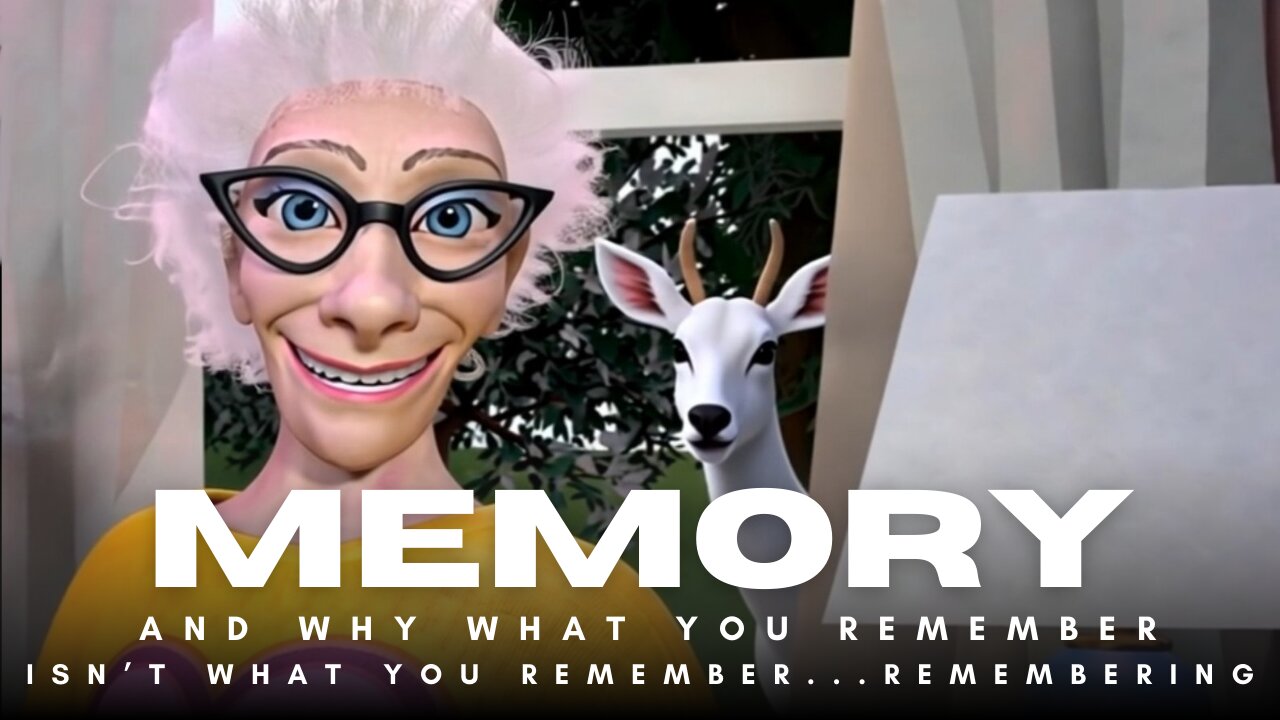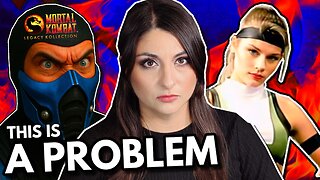Premium Only Content

The Fab on Memory
The Fab does some reading on how memory works and discovers that what she remembers might not be exactly the same as what happened.
Fab did the reading so that you don't have to:
References
Britannica – Memory: Encyclopedia Britannica article on “Memory: Definition, Retrieval, & Forgetting,” detailing the basic definition of memory and its role in perception, learning, and behaviorbritannica.combritannica.com.
Cleveland Clinic – Memory Types: Health education resources from Cleveland Clinic on memory, including “Sensory Memory”my.clevelandclinic.org, “Short-Term Memory”my.clevelandclinic.org, and general memory articlesmy.clevelandclinic.org. These provide clinical definitions and examples of sensory, short-term, and long-term memory capacity and duration.
Noba Project – Memory Module: McDermott, K.B., & Roediger, H.L. (2017). Memory (Encoding, Storage, Retrieval)nobaproject.comnobaproject.com. An open-access academic resource explaining stages of memory processing and types of memory, with examples of working memory in action and strategies to improve encoding and retrievalnobaproject.com.
StatPearls – Long Term Memory: Almaraz-Espinoza, A. & Grider, M. (2023). Physiology, Long Term Memoryncbi.nlm.nih.govncbi.nlm.nih.gov. In StatPearls. A medical review outlining the taxonomy of long-term memory (declarative semantic/episodic vs. procedural) and the role of the hippocampus in consolidating long-term memories and distributing them to the cortex.
Frontiers in Behavioral Neuroscience – Memory Suppression: Paz-Alonso, P.M. et al. (2009). “Memory suppression is an active process that improves over childhood.” Front. Behav. Neurosci. 3:24pmc.ncbi.nlm.nih.govpmc.ncbi.nlm.nih.gov. This research (using the Think/No-Think paradigm) shows how engaging the lateral prefrontal cortex while suppressing retrieval can inhibit hippocampal activity, resulting in the intentional forgetting of unwanted memories.
Nature Communications – Emotional Memory: Costa, M. et al. (2022). “Aversive memory formation in humans involves an amygdala-hippocampus phase code.” Nat. Commun. 13:6403nature.com. Experimental evidence that memory enhancement for emotional (aversive) events depends on coordinated activity between the amygdala and hippocampus, highlighting the mechanism by which emotional arousal strengthens memory encoding.
Cold Spring Harbor – Memory Consolidation: Squire, L.R. et al. (2015). “Memory Consolidation.” Cold Spring Harb Perspect Biol 7(8): a021766pmc.ncbi.nlm.nih.govpmc.ncbi.nlm.nih.gov. A review of consolidation research explaining how newly acquired memories are initially fragile and become more stable over time, and how the hippocampus gradually hands off memory storage to the neocortex (systems consolidation), based on evidence from retrograde amnesia and neural replay during sleep.
Neuron – Reconsolidation: McKenzie, S. & Eichenbaum, H. (2011). “Consolidation and reconsolidation: Two lives of memories?” Neuron 71(2): 224-233pmc.ncbi.nlm.nih.govpmc.ncbi.nlm.nih.gov. A scholarly article discussing how recalling a memory can return it to a labile state (reconsolidation), allowing incorporation of new information – emphasizing the parallels between the initial consolidation of new memories and the reconsolidation of reactivated memories.
Loftus (Scientific American) – False Memories: Loftus, E.F. (1997). “Creating False Memories.” Sci. American, 277(3), 70-75faculty.washington.edufaculty.washington.edu. A classic article by Elizabeth Loftus summarizing research on the misinformation effect and how easily memories can be altered or implanted. Loftus provides examples like subjects recalling a yield sign instead of a stop sign after being misled, illustrating the fallibility of eyewitness memory and the formation of false memories through suggestion.
Frontiers in Psychology – False Memory Mechanisms: Lentoor, A.G. (2023). “Cognitive and neural mechanisms underlying false memories: misinformation, distortion or erroneous configuration?” Front. Psychol. 14:1121760pmc.ncbi.nlm.nih.govpmc.ncbi.nlm.nih.gov. A recent review that explains how memory is reconstructive and susceptible to errors at all stages (encoding, consolidation, retrieval). It discusses how misinformation and misattribution lead to distorted or false memories, and the neural correlates of these phenomena, underscoring that false memories are a byproduct of normal memory processes.
-
 1:06:56
1:06:56
Sarah Westall
4 hours agoAstrological Predictions, Epstein & Charlie Kirk w/ Kim Iversen
25.4K2 -
 2:06:49
2:06:49
vivafrei
13 hours agoEp. 289: Arctic Frost, Boasberg Impeachment, SNAP Funding, Trump - China, Tylenol Sued & MORE!
192K93 -
 LIVE
LIVE
IsaiahLCarter
7 hours ago $1.92 earnedThe Tri-State Commission, Election Weekend Edition || APOSTATE RADIO 033 (Guest: Adam B. Coleman)
293 watching -
 15:03
15:03
Demons Row
3 hours ago $3.87 earnedThings Real 1%ers Never Do! 💀🏍️
10.2K7 -
 35:27
35:27
megimu32
6 hours agoMEGI + PEPPY LIVE FROM DREAMHACK!
137K10 -
 1:03:23
1:03:23
Tactical Advisor
10 hours agoNew Gun Unboxing | Vault Room Live Stream 044
206K32 -
 19:12
19:12
Robbi On The Record
11 hours ago $17.50 earnedThe Loneliness Epidemic: AN INVESTIGATION
48.3K83 -
 14:45
14:45
Mrgunsngear
1 day ago $101.39 earnedFletcher Rifle Works Texas Flood 30 Caliber 3D Printed Titanium Suppressor Test & Review
89.7K23 -
 17:17
17:17
Lady Decade
1 day ago $6.50 earnedMortal Kombat Legacy Kollection is Causing Outrage
54.8K9 -
 35:51
35:51
Athlete & Artist Show
1 day ago $12.34 earnedIs Ryan Smith The Best Owner In The NHL?
75.8K8